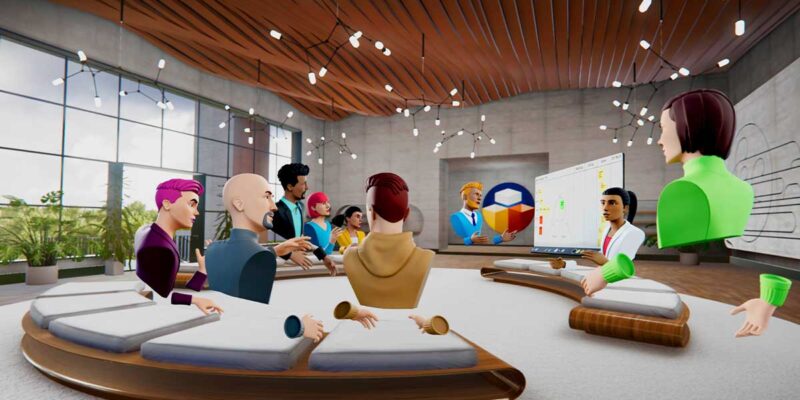Quarantined
 A couple of months ago, I wrote an article that talked about protecting your staff from the current epidemic.
A couple of months ago, I wrote an article that talked about protecting your staff from the current epidemic.
A lot has changed.
Obviously, the virus becoming a worldwide pandemic has thrown the industry into a tailspin. As an industry, we have spent a lot of time in the tailspin condition, as we are an industry accustomed to constant and rapid change. In fact, most of us have made our living by inducing constant and rapid change for our customers. The problem this time is that our customers are in the same tailspin we are.
I got a lot of emails after the last article, in which I suggested acquiring antiviral facemasks for the staff.
Too late.
That idea was based around continuing to work in an epidemic. Obviously, a pandemic is changing things. Probably the most common question people are asking is, “When do you think it will return to normal?”
Never.
It will be at least several months before we return to the ability to have public events. The pronouncements people are making in public say from three months to nine, but there are several factors in what they say that have to make you scratch your head and do your own math. My guess (and it is only my guess) is that it will be a minimum of a year before our clients could possibly start a normal external schedule again. Even if all of the quarantine orders are released, there is a rubber band effect in scheduling that says clients who have already canceled meetings for this year are going to be cautious. Exhibitors will want to make sure that clients will be willing and able to attend the show.
The other wildcard is how long quarantines last, because lifting them would make scheduling events possible again. However, our clients are scrambling now to put even more of their business meetings into telepresence than they were before, out of necessity. Many of the corporate policies on travel and attending meetings will not change back to “normal” quickly. Most large organizations were already changing their travel policies to lower their carbon footprint (and their expenses). Many of us have been working with them to make these changes possible, and now those changes will be accelerated.
So the big question is: What we do as an industry? I was asked by a close friend who runs a rental company yesterday if I thought this pandemic could kill his business. I told him that our industry has gone through several periods in my life where people thought a new technology (like telepresence) or a world event (like 9/11) was going to kill the business. But our industry specializes in being able to turn over quickly. So I don’t know what entities will survive this and which ones won’t, but our industry certainly will.
The challenge now is to find ways to continue to offer our clients the same kind of enhancement of their events that we have been able to provide in the past. I’ve written several articles about this, and the necessity for companies in our business to develop the market of distributed events, where a single event is staged in multiple venues. This is the form that I see providing our first recovery from this virus. But there is no doubt that the meetings and events that we stage are going to be forever changed by this situation. It was going to happen anyway, but our current viral experience is going to change the curve on when it happens.
We are also, of course, faced with the issue that one always faces in times of crisis, mainly, “What do we do now?” Well, I’ve been talking to a number of people who are doing some relatively clever things to keep their crews together and to continue to offer viable services. One is looking at hospitals, quick care facilities and small doctors’ offices in providing a rapid strikeforce to give them telemedicine capability quickly, for those who didn’t have it or for those who need more. Our rental crews are experts at doing complicated systems in remote locations. One hospital contacted an installation company that I know of was told that it would be around 60 days after the quarantines were over before they could install more telepresence rooms and have them working. Obviously, that’s a nonstarter. So I think rental companies can get themselves moving by looking at services that could be provided with the kind of equipment and expertise that we have. I also believe that with all of the temporary hospitals and medical facilities cropping up, FEMA certainly can’t equip them all. Nor would they be as good at it as we are.
These are all things that need to be done now. Our people are experts at doing complex technical things under fire. This is the time. We have expertise in logistics and in working in the kind of spaces that our kind is urgently needed for now. In fact, we probably have the keys. Nobody could help equip these facilities as quickly as we could. There’s also a lot of volunteer work to be done, because although FEMA is going to be equipping emergency hospitals, what about local government? We are all going to need the ability to monitor multiple situations, so even small towns will need to have a crisis center, and they will need to be connected together. This is not the same, I recognize, as staging an event or tradeshow. But we have the skills. Like everybody else, we also have the need. I think the most important question right now is, How do we keep our crews together for when things return to the new “normal?” Everybody is on an even playing field, locked up at home. People are getting bored. Big corporations are looking to use this time for recruiting online, and I know many rental technicians who are currently asking themselves what they are going to do next. If we are going to have crews, we need to give them an answer.
Our country (and our planet) will be in deep need for fast communication, rapid and clear expression of ideas and to inform the public about those ideas. No set of requirements like that could produce more need for an industry like ours. So my answer to when will things return to normal is never, but the new normal will certainly require our skills.
Stay safe, and I’ll be back with you soon. We need to work together to develop the next phase of the rental and staging business.





